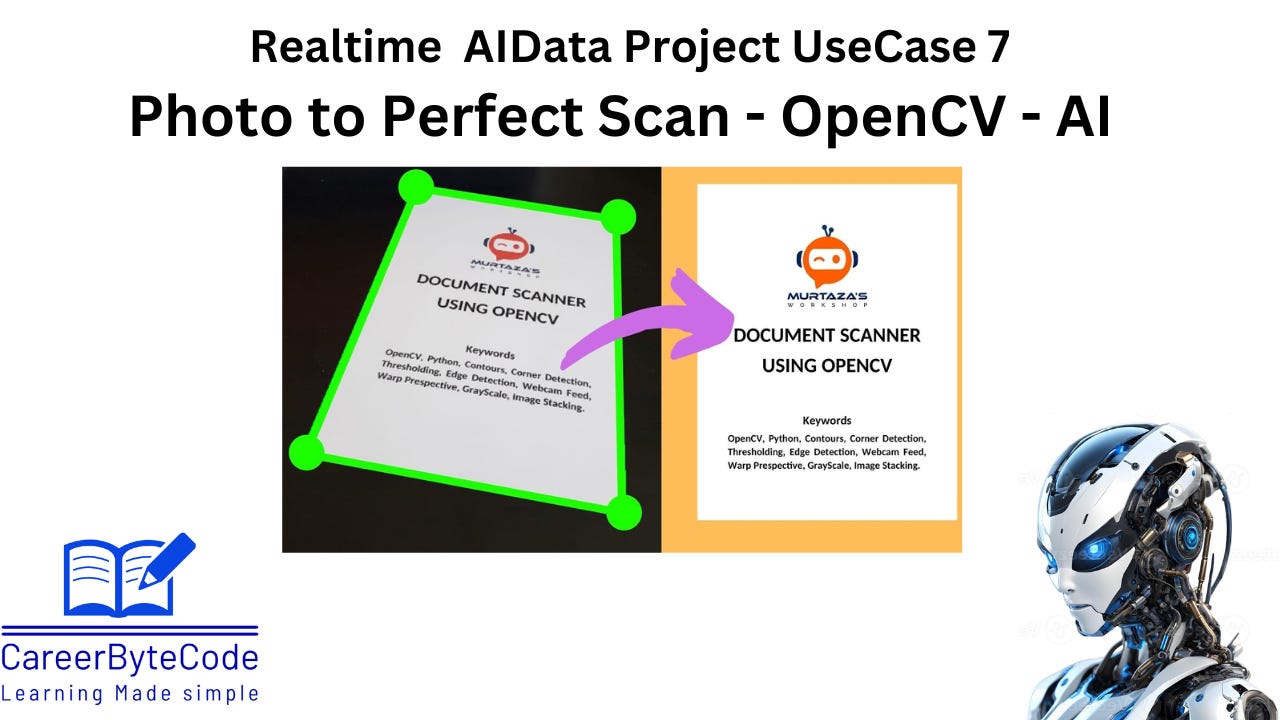Computer Vision for Beginners: Auto-Crop and Deskew Documents from Real-World Images using Open-CV
In industries like education, banking, and administration, scanned documents are crucial for record-keeping, identity verification, and compliance.
1. Problem Statement
In industries like education, banking, and administration, scanned documents are crucial for record-keeping, identity verification, and compliance. However, these documents are often scanned or photographed under suboptimal conditions — skewed angles, poor lighting, noisy backgrounds, or misalignment. As a result, manual editing is required to crop, straighten, and clean the scanned image before further use.
Manual cropping not only wastes time but is also prone to human error. Institutions need an automated, reliable solution to detect the boundaries of a document and generate a clean, aligned, print-ready version.
This use case solves the problem using OpenCV-based preprocessing, contour detection, and perspective transformation, giving scanned documents a polished look suitable for OCR, PDF conversion, or printing.
2. Why We Need This Use Case
We need this use case because:
Document quality matters in legal, educational, and financial systems. Poor scans can lead to OCR errors, incorrect information extraction, or document rejections.
Manual editing is slow and costly, especially when scanning in bulk.
Deskewed and cropped documents improve accuracy in downstream tasks like text recognition, data extraction, archiving, and automated verification.
It allows even mobile-captured documents to be made usable in formal systems with minimal manual effort.
An auto-cropping tool can streamline workflows in:
e-KYC and onboarding systems
University examination systems
Legal documentation archiving
Government digitization drives
3. When We Need This Use Case
Use this auto-cropping pipeline when:
You receive scanned forms from mobile or handheld scanners with skewed layouts.
Students submit hand-written answers via mobile scans.
Banks or agents collect ID proofs on the field using phones.
You want to digitally archive paper documents while maintaining a neat visual format.
Integrating an OCR system where skewed inputs reduce recognition accuracy.
Creating a real-time document scanner tool using a webcam or mobile app.




